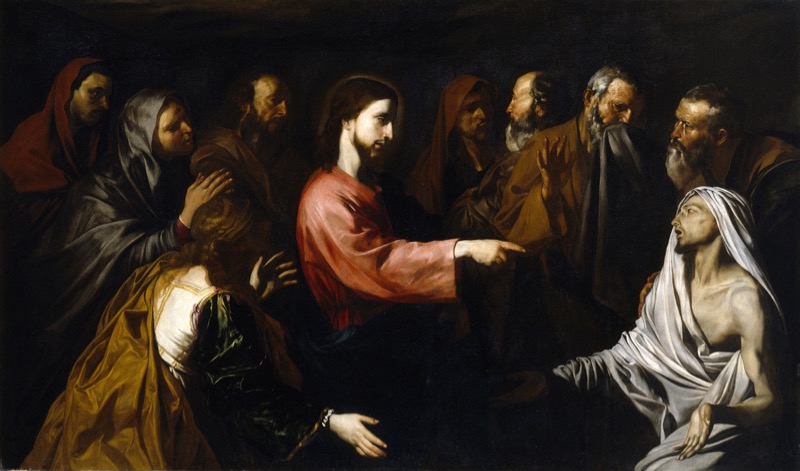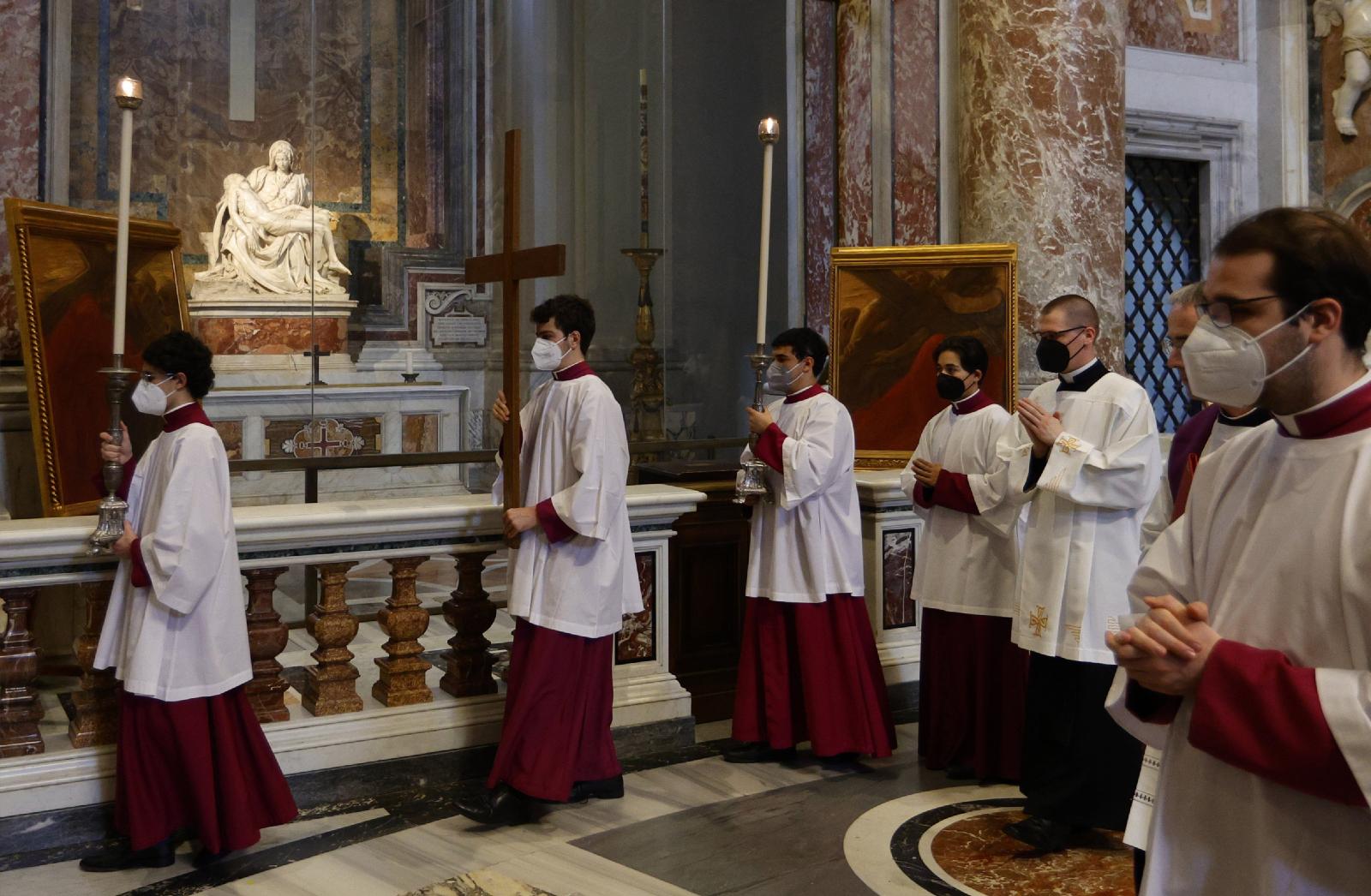The paradox at the heart of our faith is laid bare in the Passion narrative, heard today from Luke’s gospel and on Friday from John’s.
The suffering and death of Jesus is at once lays bare the greatest evil and the greatest good. God become flesh is done to death by the very flesh he created: we kill the one who comes to save us from ourselves. And he allows himself to be killed, in order to free us from the darkness that leads us to do it. He endures the worst in us, to restore the best in us.
Like a wave of grief and sorrow, the narrative engulfs us, as Jesus takes upon Himself all the pain and anguish of this world, manifest most of all in the innate propensity towards self-destruction which marks and mars our fallen nature. Nowhere is our fallen nature more conspicuous than when the nations wage war.
On a scale we had forgotten was possible, we are once again witnessing the horror and misery of armed conflict and the cruel killing of innocent lives. Even in a justified cause, war shockingly displays the dividedness of our frail human nature, so familiar to each of us in our own lives, if we are the least bit honest.
War between nations is the “war in our limbs” which we all experience writ large; and even a war set on just and justifiable aims, namely self-defence, exposes all involved to a worse evil than the loss of life. In time of war our prayer for all concerned should be all the more intense. In truth, in war we are all victims. In becoming himself a victim, the Son of God overcame in his suffering and death, the endless cycle of victimhood turning into victimisation. It was his unconditional love for us all, without exception, that dispelled the darkness of death, his and ours.
The outcome of his love was his and will be our resurrection. Only by uniting our living and our dying to his living and dying will he rise in us and we in him.
“Let him easter in us, be a dayspring to the dimness of us, be a crimson-cresseted east…” Gerard Manley Hopkins, The Wreck of the Deutschland.



 Loading ...
Loading ...
What do you think?
You can post as a subscriber user ...
User comments (0)